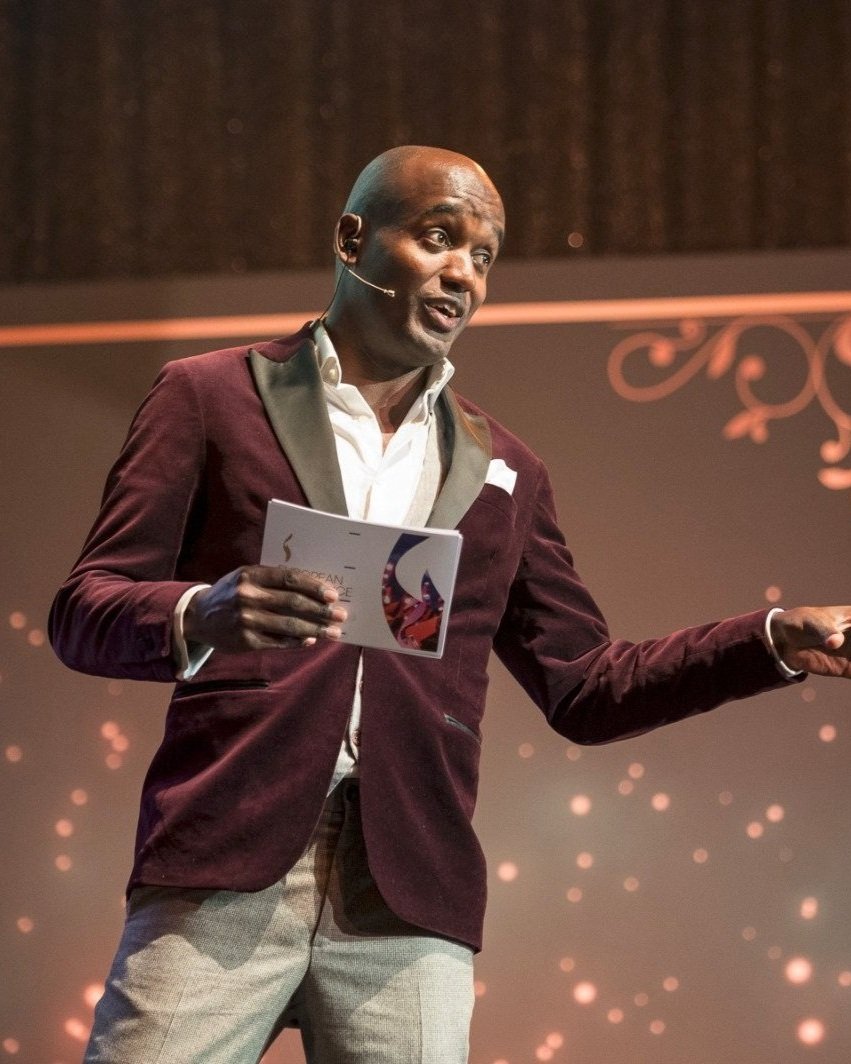Erik Eklund
Human Connection Designer & Facilitator
- Age 39
- Medellin Colombia
- Nationality Swedish
- What defines him "A child of no nation and a colorful expression of Universe"

Who is Erik?
Adopted; growing up was a never-ending journey of being reminded my will didn't matter until I was 18 and that I should go back to where I came from. Studies; my dream was to become a fighter pilot so I studied the most advanced programs in high school to qualify for the recruitment in the military, which I did, but then my base was up for foreclosure due to spending cuts so I couldn't do my Military Service. First job; working in the kitchen of a restaurant doing all the dishes, cleaning, and re-stocking, as well as working on a farm, and offering the elderly to take care of their gardens. First trip; I "fled" Sweden at age 19 to work as a camp counselor for children with Camp America and YMCA in Philadelphia for 3 months. First leadership role; the youngest person to hold a manager role for a resort on Mallorca. My B.A.: I studied with Les Roches in Switzerland and finished in Kendall in Chicago, USA, summa cum laude and a 4.0 GPA Early career; ever since I've been working across the world from luxury cruise ships in the Caribbean to luxury hotels in China, been unemployed several times to get the jobs I put my mind to. The pivot; my 8-year-old nephew died of a heart issue and I was in a dark place due to a relationship that had left me heartbroken, I decided to never take tomorrow for granted and spotted the issue of authenticity and expressing our true selves. Entrepreneurship; I ended up as an entrepreneur (nothing planned) and it worked out really well until the pandemic. Post-pandemic:I've struggled to find my footing ever since and my money has been only coming and going right back to taxes, etc. built up from the pandemic and I don't have a family that can/want to support me.
Professional Recommendation
Goals
Erik's Present and Future
Present: An increasing number of opportunities lining up and I'm working all day every day to create and find a way to support others that also support me. And yet, I have nothing that finances me now and minus in two bank accounts. So, I'm i deep debt to my friends, I haven't paid rent for 4 months, and have no money for food (friends help me out with groceries). I also have debts to social security, hacienda, my health insurance, accountant, membership club and mobile provider. Plus, I can feel my ear ring and identify several burnout signs, I'm doing my best to be calm, aware, with a clear mind and on a high energy - but it's far from ideal.
Future: Debt-free. Surrounded by a dream team and have a sustainable business model. Founder and owner of The Oasis - a space in the middle of nowhere designed for people to come and experience what it is like to BE themselves around several activities led by hand-picked experts in personal growth on the 4 elements of human: physical, emotional, mental, and spiritual. I live in a cute little house by the sea outside the city with my family where I get to invite my brother and his family to spend time as an extended home away from home - enjoying the sun and ambiance of the Mediterranean.
HELP Program Status
The status meter below identifies the Homeless Entrepreneur’s current HELP program stage.
Click here to read more about our HELP Program, and understand its different phases and stages.
The HELP program consists of three phases:
Phase one, which lasts up to 12 months, is divided into 7 stages, where each Homeless Entrepreneur (HE) is assigned a coordinator and nine managers (covering the following areas: professional development, education, health, housing, finance, legal, communication, sales and general assistance).
Housing
Stage 1: Homeless Homeless people living in public spaces, external spaces or night shelters. Stage 2: Houseless Homeless people living in homeless hostels, temporary accommation, transitional supported accomodation, women's shelter accomodation. Stage 3: Insecure Housing Homeless people temporarily living with family/friends, squatting, or under the threat of eviction or violence need to advance to stage 4 or 5 as quickly as possible Stage 4: Inadequate Housing Homeless people living in temporary/ un-conventional structures, unfit housing or extreme overcrowding need to advance to stage 5 as quickly as possible. Stage 5: Dignified Housing Have a safe, affordable and clean place to call home allows one to focus on building a future as a contributing member of society.Health
Stage 1: Disengaged & Overwhelmed Being disengaged, overwhelmed and exhausted is common for many homeless people due to the high level of stress and overall poverty being experienced. Stage 2: Becoming Aware but still Struggling Homeless individuals face difficulties with sleep, fatigue, and daily tasks, leading to stress and low self-esteem. Establishing a beneficial routine can be a challenge. Stage 3: Maintain Behaviors & Pushing Forward Homeless people find it hard to improve their health due to poor sleep, low self-esteem, and stress. They know they should establish healthy habits, but it's tough. Stage 4: Healthy Lifestyle Once this stage has been reached, the objective is to maintain it and mitigate the risk of entering homelessness again.Professional
Stage 1: Disengaged & Misinformed Poverty can isolate people from their community and vital information, causing division instead of unity. Stage 2: Motivated but Lacking Network Homeless individuals need community connection, accurate information, and a supportive network to stay motivated and continue personal and professional growth. Stage 3: Entering Workforce & Building Professional Skills Building a positive network can help homeless individuals find job opportunities and develop stronger professional skills. Stage 4: Discovering True Professional Potential Knowing your strengths and weaknesses helps you reach your full potential as a business professional and optimize your resources and time for a happier, healthier career.Training
Stage 1: Outdated Training Many skills that one has learned become obselete due to technological advances, which means that one must accept a new professional reality. Stage 2: Basic General Training Building basic general knowledge, skills and competences allow one to enter the desired professional sector for an entry level position or as an intern. Stage 3: Intermediate Sector-Specific Training Focused sector-specific training can lead to career growth within or outside an organization. Stage 4: Advanced Sector-Specific Training At this stage, the professional has proven he or she is competitive in his or her sector and has the opportunity to open doors for HEs in earlier stages.Communication
Presentation Skills To introduce oneself well, use clear structure, strong material, the right tone, and control body language. Negotiation Skills Learning how to communicate, persuade, plan, strategize and cooperate allows one to reach a compromise and attain her or his goals faster. Business Writing Skills Efficient business writing skills will allow one to provide relevant information in the right style, which is clear and easy-to-read, within the right context. Influencing Skills Positive behavior can influence others to change. Cross-Culture Communication Having a deep understanding of different cultures can help individuals integrate smoothly into society. Win-Win Conversation Conversations focused on all parties that are involved feeling good about the actions and desired outcomes help create new opportunities, growth & potential value. Selling Skills Being able to sell oneself and/or products and services help one get a job, keep it and evolve professionally. Teamwork Building Knowing everyone's strengths and weaknesses helps maximize group productivity by utilizing each person's unique abilities.Legal
Stage 1: Forgotten or Unattended Legal Issues Non-criminal legal problems like government benefit claims, evictions, child custody, and employee rights can impact civil liberties and often go unattended. Stage 2: Resolving Legal Issues With the right legal support, homeless people can afront these issues and resolve them in a timely manner so they can overcome unnecessary administrative roadblocks. Stage 3: Law Abiding Citizen Obeying the law means they are protected from it and can focus on developing other aspects of their life as contributing members of society.Finances
Accounting Skills Being in control of one’s financial health and being able to plan for the future allows one analyze investments, reach savings goals, control debt and focus on profitability. Financial Analysis Skills Understanding one’s financial performance allows one to track and analyze the past and present in order to create a clearer financial forecast. Forecasting Skills Being able to measure the accuracy of predicting one’s financial future allows one to plan ahead and be better prepared for financial ups and downs. Risk Management Skills Identifying potential causes of accidents or loss allows one to implement preventive measures, and devise plans to minimize costs and damage. Finance Reporting Skills Organized and concise financial data helps make better decisions for financial health. Financial Literacy Skills Understanding and effectively applying financial skills, i.e. personal financial management, budgeting and investing, allows one to be financially autonomous.HELP Progress Bar
Wheel of Life
A wheel of life is a simple yet powerful tool for visualizing all of the areas of a Homeless Entrepreneur’s life. We will provide insight on the individual’s perception regarding his or her life at the very beginning of the HELP program, while he or she progress as well as define the person’s goal.
Erik’s Support Community
All of Erik’s stakeholders play an important role in creating new sustainable opportunities that will inspire both individual and systemic change.
His Stakeholder Community
City Halls
Neighbor communities
Education and CSR departments
Swedish people and Swedish institutions
Individuals and institutions that support poverty reduction and ending homelessness
Retired citizens
Professors and universities
Private Donors
Monthly donations will provide greater stability for Erik.
Volunteers
Volunteering not only helps Erik, it will also help you grow professionally and personally with him!
We are always looking for proactive volunteers who want to take part in the change they would like to see in the world.

